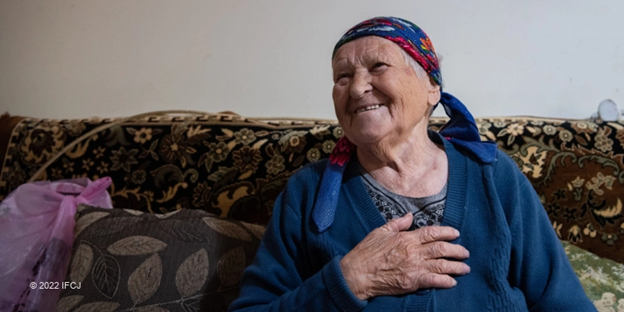‘The People at The Fellowship Remember Me’ When Lidia meets us at the door of her small apartment in Nof HaGalil — an Israeli town near Nazareth — just the few steps she took leave the 90-year-old Jewish woman out of breath. She cannot get used to this helplessness, not after a physically exhausting life as a milkmaid or as that of someone who survived the Holocaust. Born in Ukraine before World War II began, Lidia and other children like her were forced into labour by the invading Nazis. “We were starving,” she remembers. Although the family survived the Holocaust, her mother died shortly after the war’s end, leaving Lidia and her siblings abandoned. The family ended up in a tiny village in the middle of Siberia — in the middle of nowhere. “What we found when we arrived was horrifying,” she says, remembering the Siberian cold and a shed that served as their home and “didn’t have any doors — we had to climb in and out through a window.” Life in Siberia remained difficult. Lidia’s brother was gone, drafted into the Soviet army. And even once Lidia met and married a Jewish man, exposure to chemicals at a communist farm where he worked had long-term effects and ultimately left Lidia a widow. While there was no medical help for her husband in the Soviet Union, she thinks he might have found relief if he had made aliyah (immigrated to Israel). But her husband had passed away by the time Lidia at last made aliyah in 2000. “I had never left the USSR before and I was scared,” she admits. And life as an elderly Holocaust survivor, even in her biblical homeland, can still be difficult. Her health deteriorating and her finances unable to afford food, Lidia gratefully accepts the help of The Fellowship. “Thank you, thank you, my sweetheart!” she says, accepting a food package. “Food is essential. But what’s even more essential is that the people at The Fellowship remember me.” You can remind one of God’s children in Israel that they are loved. |
|
|


